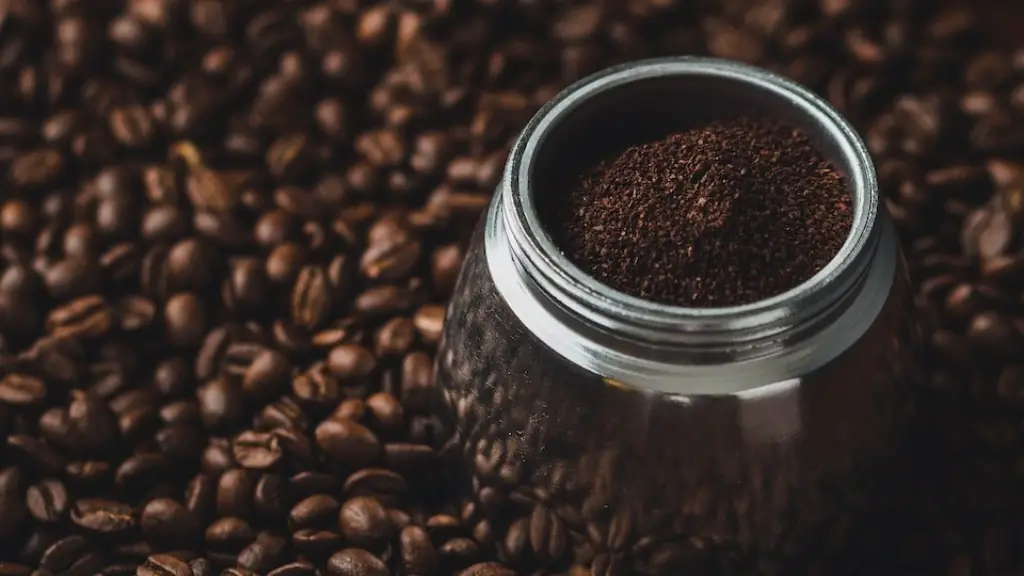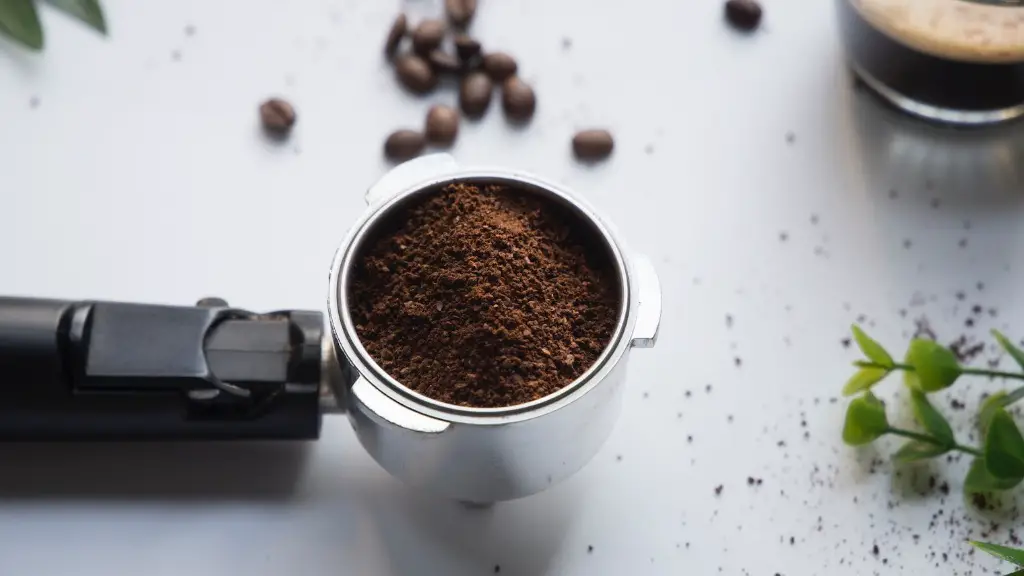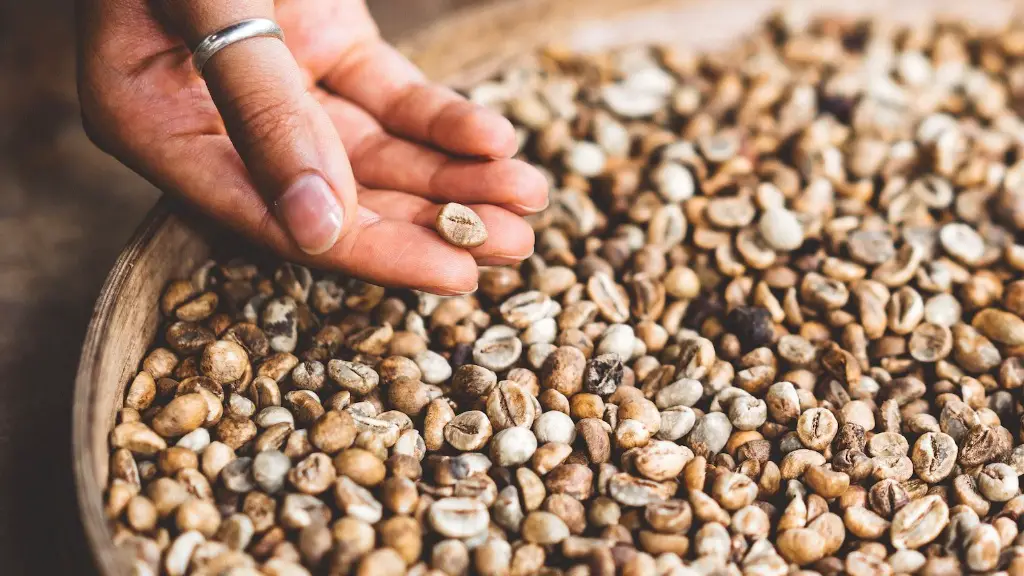Many of us love drinking coffee and the thought of sipping on it during a workout is quite alluring for the caffeine-dependent. That said, consuming the beverage before, during and after exercise is a heavily debated matter. We’ve all heard the buzz surrounding caffeine and its potential benefits, but there are other factors that come into play.
Caffeine has long been recognized to improve physical performance. A study published in Medicine and Science in Sports and Exercise found that consumption of caffeine before a workout could increase muscle activity strength by as much as 20%. This means you might be able to push your workout a bit harder and longer, improving your overall results. Caffeine is also known to decrease the perception of exertion. This could help you fight off feeling tired during those long training sessions.
Despite the potential benefits of caffeine for performance, it could also have some drawbacks. A study published in the Journal of Strength and Conditioning Research found that caffeine can cause dehydration and increased heart rate and blood pressure during exercise. It also found that caffeine’s effects can vary from person to person, and it can affect different parts of the body differently. Both of these factors can lead to a decreased performance, especially when it comes to long-term endurance exercises.
So, is it a good idea to drink coffee during your workout? It depends. If you’re looking for a quick pick-me-up before a HIIT session, then a cup of coffee might be just what you need. On the other hand, if you’re looking to improve your endurance and overall performance, then it might be best to stick with plain water.
Caffeine Sensitivity
If you choose to drink coffee before or during your workout, it’s important to understand how caffeine affects your body. Over-consumption of caffeine can lead to nausea, headaches, insomnia, and even jitteriness. It’s important to know how you react to caffeine before drinking it during your workout, as it can drastically affect your performance.
If you’re unsure of your caffeine tolerance levels, it’s a good idea to start off with a lower dose. A cup of coffee or a small shot of espresso can do the trick. You can then work your way up as needed, and be sure to monitor how your body responds. It’s always best to start off slowly and gradually increase your intake as you become more familiar with the effects of caffeine on your body.
It’s also important to remember that caffeine is a diuretic, which means it can cause dehydration. This can be dangerous while exercising and can lead to more serious issues. To combat this, it’s important to drink plenty of water before, during, and after your workout. Doing so will ensure that your body is properly hydrated and you can get the most out of your workout.
Alternatives To Coffee During Exercise
If you’re looking for a way to give your workout an extra boost, there are other alternatives to coffee that can provide you with the energy you need. Energy drinks, juices, and even boosters made from all-natural ingredients can be great alternatives. These types of drinks will provide you with a much-needed pick-me-up without the potential drawbacks of caffeine.
If you don’t enjoy the taste of coffee, you can try a caffeinated beverage such as tea. Green tea, oolong tea, and even black tea have all been known to provide a boost in energy, and can be great options for those looking for a caffeine-free approach. Fruit and vegetable juices are also excellent options and usually contain plenty of vitamins and minerals that can improve your overall performance.
The Bottom Line
When it comes to consuming coffee during exercise, there is no right or wrong answer. While caffeine can provide a useful boost in performance, it can also have some potential downsides. It’s important to understand how your body reacts to caffeine and to always make sure that you are properly hydrated before and during exercise.
If you do choose to drink coffee during your workout, it’s best to start off with a smaller dose and gradually increase your intake as needed. Not everyone responds to caffeine the same way, so it’s important to know your limits. Alternatives such as energy drinks, juices, and teas can also provide you with an energy boost and are usually caffeine-free.
How To Choose The Right Coffee
Not all coffee is created equal, and it’s important to know the differences between the various types of coffee. The two main types of coffee are Arabica and Robusta. Arabica is often considered to be higher quality, as it is grown in higher altitudes for a longer period of time. Arabica beans also contain more flavor compounds and typically have higher acidity levels.
Robusta beans, on the other hand, are grown at lower altitudes and have a higher caffeine content. They also have a much stronger flavor and often contain more bitter notes. It’s important to understand the differences between the two types of beans, as they can have a significant impact on your overall cup of coffee.
When it comes to brewing coffee, it’s important to choose the right kind of equipment. It’s best to invest in a good quality coffee maker, as it will ensure that you get the most out of your beans. It’s also important to make sure that you are using filtered water and the correct grind size for your particular brewing method.
How To Maximize The Benefits Of Coffee
If you choose to add coffee to your workout routine, there are a few simple steps you can take to maximize the benefits. Start off by drinking a cup of coffee before or during your workout. This will provide you with a quick jolt of energy that can help improve your performance. Drink plenty of water before and during your workout as well, in order to stay properly hydrated.
It’s also important to listen to your body as you’re exercising. Coffee can affect your body differently from one day to the next, so be mindful of how it’s affecting your performance. Don’t overdo it, and make sure that you are drinking plenty of water in order to combat the effects of dehydration.
You should also be mindful of the amount of caffeine you are consuming throughout the day. Caffeine can be highly addictive, so it’s important to stick to a moderate intake in order to avoid potential negative side effects. If you find yourself needing more than one cup of coffee to get through your workout, it’s time to hit pause and re-evaluate your caffeine consumption.
Conclusion on Coffee During Workouts
In conclusion, drinking coffee during your workout can be beneficial or detrimental, depending on your personal tolerance. It’s important to be mindful of how your body is reacting to caffeine, as well as making sure you are properly hydrated throughout your workout. If you choose to drink coffee, make sure to select the right type of beans and brewing method in order to get the most out of your cup of joe.




